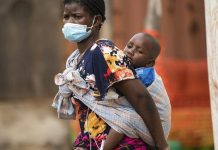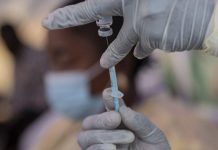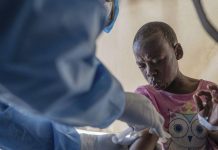AfricaPress-Tanzania: THE Controller and Auditor General (CAG), has directed the Ministry of Health, Community Development, Gender, Elderly and Children to conduct a thorough analysis which will be based on the actual size of population for immunisation and vaccination activities.
The recommendations are part of the CAG report handed to President John Magufuli last month, where the ministry was also directed to ensure adequate planning for availability of vaccine stocks and its related supplies at central and regional vaccine stores.
As for the Regional Administration and Local Government Ministry, the CAG, Mr Charles Kichere said they must ensure adequate planning for timely distribution of vaccines to district vaccine stores and to health facilities to allow continuity in provision of immunisation and vaccination services.
Moreover, he said both the ministry of health and regional administration and local government should strengthen the mechanism for deploying skilled health workers in health facilities, especially those located in remote areas to improve availability of quality immunisation and vaccination services.
“Ensure regular formal trainings and refresher training are conducted on vaccine and cold chain management, especially for the newly recruited staff” read the report in part.
The Performance Audit Report on the Management of Immunisation and Vaccination Project called for the strengthening of community advocacy in order to increase coverage by ensuring all eligible groups for vaccination are reached.
Moreover, the two ministries have to liaise with the Ministry of Finance and Planning to ensure funds are timely disbursed to allow timely implementation of immunization and vaccination activities.
This includes ensuring timely availability of both reports of achievement of agreed service delivery performance indicators and verification that enable timely release of funds by development partners and the Ministry of Finance and Planning.
Further, he wanted regular maintenance of the cold chain equipment to ensure vaccines are stored within the recommended temperature range.
On top of that, the report recommends for speeding up installation of Remote Temperature Monitoring system (RTM) in all health care facilities to enable instant sharing of information in case temperature goes out of range so as to take timely corrective measures.
It also encouraged strengthening supportive supervision, especially to health centres and dispensaries in order to track progress made and observe anomalies originating from implementation of immunisation and vaccination services in health facilities.
He said there has been persistence of inequalities in terms of access of immunisation and vaccination services among various social groups in Tanzanian communities.
It has been reported that less has been invested to support implementation of the immunisation and vaccination programme activities, which is contrary to the Addis Declaration which called on African leaders to pledge on increasing and sustaining domestic investments and funding allocations to meet the cost of traditional vaccines and fulfill new vaccine financing requirements.
“In this regard, the Controller and Auditor General decided to carry out a performance audit on the Management of Immunisation and Vaccination Projects, with the objective of determining whether the Ministry of Health in collaboration with PO-RALG efficiently manages the implementation of Immunisation and Vaccination Project activities to ensure preventive care is improved and immunisable diseases are controlled”.
The audit covered three financial years, 2016/2017 to 2018/2019. Main Audited entities were the Ministry of Health, Community Development, Gender, Elderly and Children and the President’s Office-Regional Administration and Local Government (PO-RALG).
The audit focused on planning prior implementation of Immunisation and Vaccination activities, funding and implementation of Immunisation and Vaccination projects at both Ministerial and Health Facilities level.
Further, the audit examined the adequacy of monitoring and evaluation activities executed.







